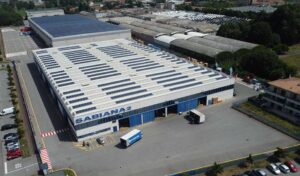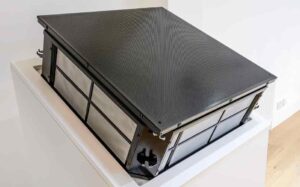Disposable cylinder ban is “long overdue”
13th December 2015 NORWAY: A maritime industry supplier has called for a global ban on disposable cylinders and warns that an HFC phase-down could lead to an increase in counterfeits.
NORWAY: A maritime industry supplier has called for a global ban on disposable cylinders and warns that an HFC phase-down could lead to an increase in counterfeits.
Claiming that disposable cylinders are a significant risk to port workers and support the trade in counterfeit refrigerants, Svenn Jacobsen, refrigeration technical product manager at Wilhelmsen Ships Service, says a worldwide ban on disposables, also known as non-refillable cylinders, is long overdue.
“The main reason these refrigerants continue to circulate is because of the continued existence of disposable cylinders,” said Jacobsen. “These cylinders are the container of choice for the counterfeiter. Cheap and untraceable, no counterfeiter is ever going to get any complaints from their customers using this type of packaging.
“If the legitimate refrigerant suppliers no longer provided refrigerants in disposable cylinders, the counterfeiters would be out of business,” he added. “We don’t support their use and we believe a worldwide ban is far overdue.”

The EU banned disposable refrigerant cylinders in the EU and on EU flagged vessels in 2007. Similar bans are also in place in Canada, India and Australia. However, disposable refrigerant cylinders are still in use elsewhere in the world.
Jacobsen also claims that despite efforts by the legitimate refrigerant manufacturers to crack down on counterfeiters and the measures taken to discourage fakes, counterfeit refrigerants remain an industry menace. He claims that even elaborate precautions, such as holographic seals or cylinder stamps, are easily copied in days rather than months. For Jacobsen, the only way to put an end to this illegal and dangerous market is to ban disposable cylinders.
Phase-down will exacerbate problem
While applauding moves by the EU and others to reduce the environmental impact of R134a refrigerants with phase-downs, he cautions that these regulations may inadvertently create a strong market for suppliers of counterfeit refrigerants.
“It is likely that the reduction in the supply of EU HFCs will lead to shortages and a sharp spike in costs, meaning some operators will be tempted to purchase lower-price refrigerants,” he says. “This regulatory change will create an ideal market for counterfeiters. Despite numerous warnings, accidents and fatalities, many operators will be more willing to take a chance on gases packaged in disposable cylinders by unregistered suppliers. We anticipate that the counterfeiters of R134a are going to be very busy in the years ahead.”
R134a is the most used refrigerant in refrigerated shipping container units accounting for approximately 80% of the market.
Wilhelmsen Ships Service says operators should exercise common sense, coupled with a healthy dose of scepticism. Because fake refrigerants are found exclusively in disposable cylinders, Jacobsen recommends that operators only purchase refrigerants supplied in refillable, re-usable, traceable cylinders. For operators who insist on using disposable units, they should make sure a reputable company, which has been audited and approved by a licensed manufacturer, is supplying their refrigerants.
Finally, he warns that if the price quoted for gases is way below the market average, it is likely to be a counterfeit.
In 2011, several refrigerated, reefer containers exploded, killing three port workers. The incidents were traced to a counterfeit refrigerant blended to mimic R134a but actually containing a mixture of R22 and R40 (methyl chloride).
According to international insurer TT Club, R40 contamination accounts for 0.2% of the world’s reefer container fleet, affecting about 2,500 reefers. However, other counterfeit refrigerant mixtures are known to exist, so the number of reefers affected could be far higher.







